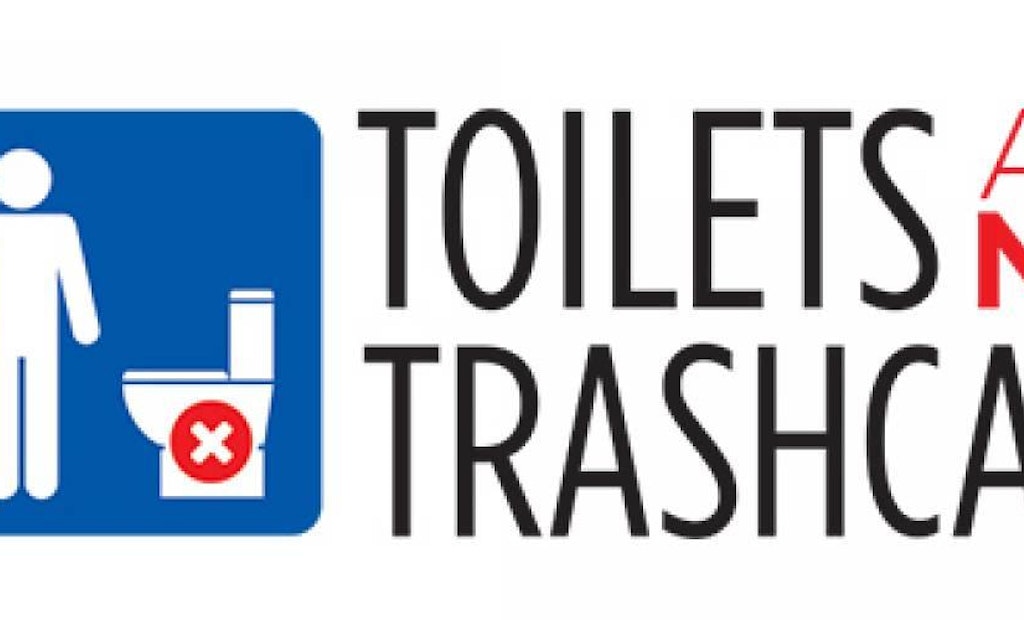
Interested in Education/Training?
Get Education/Training articles, news and videos right in your inbox! Sign up now.
Education/Training + Get AlertsCynthia Finley grew up with a septic system, so she learned as a child what not to put down a toilet. However, she knows not everyone has that knowledge.
That’s why as director of regulatory affairs for the National Association of Clean Water Agencies in Washington, D.C., she’s working hard to get that word out to the public, as well as to associations in the wastewater industry. One way NACWA is doing this is through its Toilets are not Trashcans campaign.
The campaign launched about two years to encapsulate the work NACWA members are doing. “We really need to keep the message out there,” says Finley. “There are a lot of things that can make an impact.”
The campaign focuses on protecting the pipes, pumps, plants and personnel of wastewater utilities across the nation by keeping unflushable materials, such as wipes, paper towels, dental floss and feminine products, out of the sewer system. It also targets other consumer products with ingredients such as plastic microbeads or triclosan, which might harm water quality and the environment.
The main focus of the program is flushable wipes — and disseminating consumer education materials that explain wipes are not flushable and can cause extreme damage to pipes and septic systems. But in addition to educating the public, NACWA is working closely with manufacturers to develop new flushability guidelines.
“As NACWA continues to work on this problem with the Water Environment Federation and the American Public Works Association, it is becoming more and more apparent just how expensive this problem is for utilities,” Finley says.
For example, according to Finley’s blog, the City of Vancouver, Washington, has spent $650,000 on new pumps and equipment in the past five years and spends more than $100,000 each year in extra maintenance and electricity costs because of clogged pumps. She also notes:
- Clean Water Services in Oregon spends about $120,000 dealing with wipe-related problems.
- The Orange County Sanitation District in California has spent $2.4 million in the past five years on new equipment and more than $300,000 in one year to unclog pumps.
- Columbus Water Works in Georgia spent $550,000 in the past two years on new inline grinding equipment and spends $250,000 each year on additional operations and maintenance costs.
According to a 2014 Bloomberg Businessweek article, New York City, which runs the largest U.S. sewer system, has spent more than $18 million during in the past five years replacing and repairing sewer plant pumps, gears, valves and screens clogged when the cloth-like material.
As part of the campaign, NACWA offers utilities and associations the Toilets Are Not Trashcans logo for free. For example, Finley says Mount Pleasant Waterworks in South Carolina uses the logo on its trucks.
NACWA was established in 1970 by a group of individuals representing 22 large municipal sewerage agencies to secure federal funding for municipal wastewater treatment and discuss emerging national interest in improving the quality of the nation’s waters. The organization currently has about 300 nationwide members. For more information, visit www.nacwa.org.





